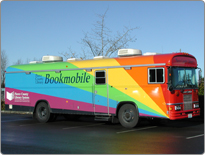To move or not to move a parent with dementia

People often put off moving their family members suffering from dementia (Alzheimer’s, Parkinson’s, Lewy Body, Frontal Lobe or other) into a residential facility for a variety of reasons that often don’t hold up under closer inspection. Here are some of the most common reasons that people wait.
Reason #1: Waiting until mom gets worse to make a move.
Many families hope their loved one will never get worse, or wait from a directive from their primary care physician or the hospital (if a crisis happened before). Yes, a move may affect mom’s memory but it will allow her to enjoy the benefits of assisted living (companionship, activities, brain stimulation, good nutrition, nursing supervision) while she still can. It will also make her transition better if in the future she needs to move to the community’s memory care because:
- Mom may now know the staff and be less reluctant to receive care
- Mom will have a structured routine that will minimize her fears. She will also have more of a feeling of companionship rather than abandonment.
- Mom will have by then some familiar faces and friends who will be transitioning with her
- Most secured memory cares have a wait list and place the community’s own residents before placing a new resident
Reason #2: Mom wants to stay home.
If your family is able to provide in home care, this may be an option. However, six out of 10 people suffering from dementia will wander out of their homes. What will happen if your loved one leaves the home in the middle of the night?
Providing yourself with peace of mind is as important as providing for their best care.
Home care can become expensive (on average, if you are paying for seven or more hours of in-home care, you could have your loved one in an assisted living environment with all the care provided and supervision 24/7), and it doesn’t provide the interaction and stimulation a retirement community could provide.
Short-term stays are a great way for seniors to “try†a community. In today’s era, a senior community is more like a cruise ship rather than the old-style nursing homes.
Reason #3: Mom can’t afford it.
There are several ways to pay for assisted living and memory care communities. For instance:
- Aid and Attendance is part of an “Improved Pension” Benefit for veterans and surviving spouses that is largely unknown. Â Aid and Attendance can help pay for care in the home, Nursing Home or Assisted Living facility.
- Long-term care insurance can pay for a nursing facility or home care, and many policies also cover assisted living.
- Some communities may convert to Medicaid but be careful when this promise is made.
Recently I heard of a family that had been promised to convert to Medicaid if their mom did a private pay stay at their community for a minimum of 2 years. The senior has been there over a year and then the community was sold to a different ownership group who has no intention to convert to Medicaid. Not only must this type of promise be in writing but you must also investigate the stability of the group you are choosing for providing care for your loved one.
Reason 4: Mom will hate me if I do this to her.
Although a move is not an easy transition, it is better to do it when you have a choice rather than being forced to do it (like if mom goes to the E.R. and they will only discharge her to a community).
It takes between 4-8 weeks to fully transition and feel comfortable in a new environment. Transitions are definitely harder when a senior is more progressed in dementia. A sudden change at this stage may start behaviors that some senior living communities may not accept, thereby limiting your options. A senior housing provider who has training in memory care can help you with the transition, from sending you email updates as needed or letting you know what time of the day your parent is in a better mood for a visit.
Recognizing that your parent needs a change to remain safe or healthy can be traumatic to both of you. The best time to talk to your parent is long before it is actually necessary. It is important not to rush the decision and to recognize that seniors want to hang onto their independence for as long as possible even though that may not be what is best for them. The good news is that there are options out there to help your parent get the care needed and there are people to help you with the process. Your parent needs you whether they admit it or not. Continually reassure them that you are there for them and always will be. Throughout the process, keep your sense of humor and keep the communication lines open.
Sandra Cook is the Marketing Director for Aegis Lodge in Kirkland, WA. She can be reached at (425) 814-2841.


 National Fire Prevention Week 2011 will be observed from October 9-15. This year’s theme is: Protect Your Family from Fire, and according to FEMA Regional Administrator Ken Murphy, the 2011 campaign is all about keeping ourselves, our families, and our communities safer from fire.
National Fire Prevention Week 2011 will be observed from October 9-15. This year’s theme is: Protect Your Family from Fire, and according to FEMA Regional Administrator Ken Murphy, the 2011 campaign is all about keeping ourselves, our families, and our communities safer from fire.